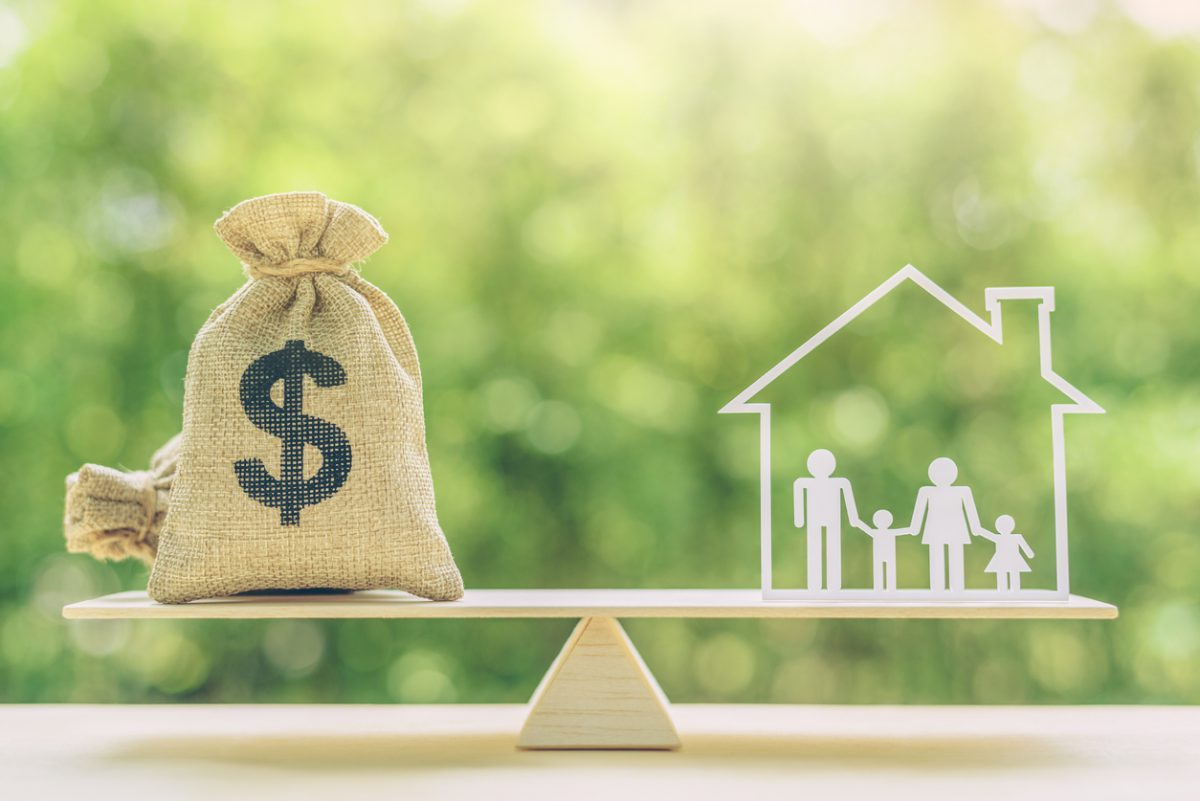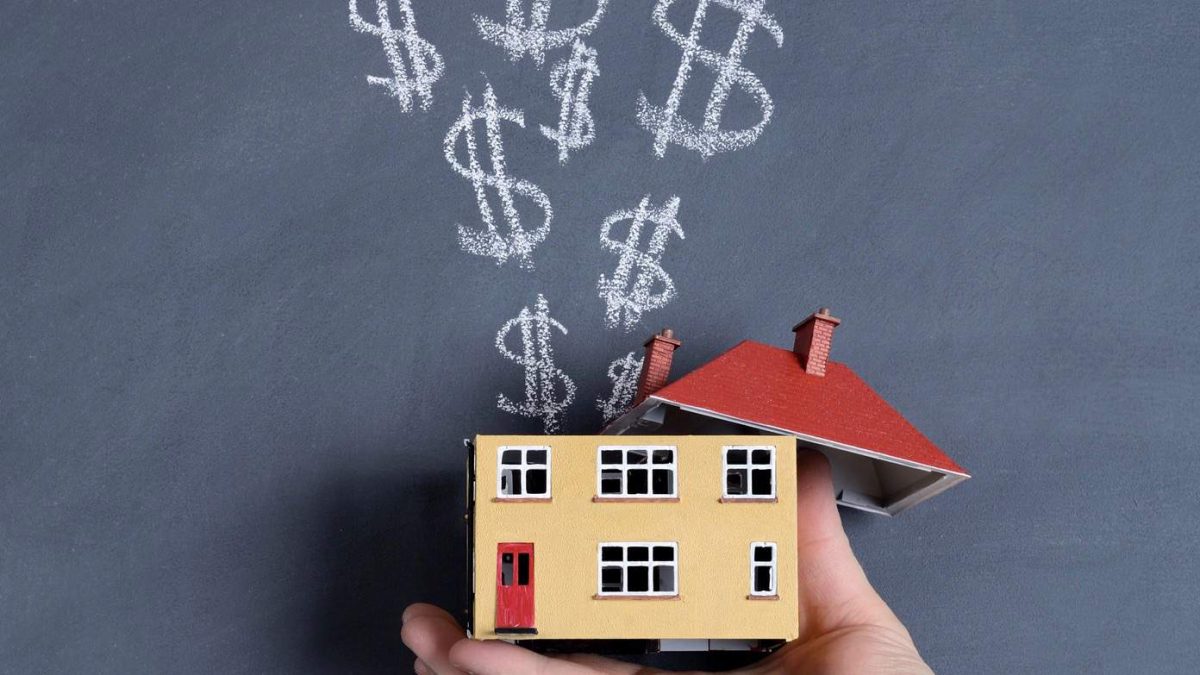Home is where the heart is. It’s also where a big chunk of your financial responsibility lies. Home ownership is a pillar of the American dream, and while many of those in younger generations either can’t afford to or actively choose not to pursue it, those who buy in to the housing market often see major financial benefits.
There is no doubt that becoming a homeowner is one of the biggest financial decisions you will make in your entire life. It’s also undeniable that simply getting to that point requires a certain degree of financial success. You need to come up with a down payment and closing costs (generally about 3 percent to 4 percent of the total home purchase price for buyers) before you can even turn the key in the door. But among those who take on the big task of home ownership, many see financial benefits that far outweigh their initial investment, especially during tax season. Here are 5 of them.
Amass equity
Every single month that you pay your mortgage you own just a bit more of your home. This is a big benefit over renting, where you’re paying comparable monthly fees without any comparable stakes. The equity in your home builds in two ways and often concurrently: (1) equity builds as the value of your home increases, and (2) equity builds as you pay off more of your loan. These two factors mean that after the first couple of years (when, again, you’re mostly just paying mortgage interest), every month you pay money toward your loan you are building up your financial resources for the future. It’s why some people refer to mortgage payments as “forced savings.”
Want to build equity even faster? Take steps to pay off your debt quicker (like financing with a shorter term loan or paying more than you owe every month) or increase your property value (think home improvements and a focus on routine maintenance).
Build up a stronger financial future
The recent recession threw a wrench into the idea that home ownership always builds wealth over time. But the fact remains that owning a home is one of the fundamental means of accumulating wealth as we age. The caveat: you have to buy a house that you can actually afford.
Asset-wealth is a much more secure predictor of future financial stability than income, which can—and often does, in today’s evolving economy—change from year to year. In a strong economy, home values generally increase by 3 percent to 4 percent every year, thanks to inflation and natural population growth. From 2011 to 2016, as the housing market has recovered from the bubble that contributed to the recession, home values have been increasing even higher at an average rate of 6.3 percent a year. Putting money into home ownership versus a rental is akin to the difference between putting money into an investment account versus a no-interest checking account, with the latter being only as valuable as it is in the moment while the former increases over time.
More control over day-to-day housing-related costs
Unless you change the terms of your mortgage, you know the base cost that you’re going to be spending to live in your home every month, both now and in the future. This affords more stability than rent, which is variable and can (and often does) change over time. And control over costs goes even further than that. As a renter, you don’t have a say over whether your landlord supplies you with energy-efficient appliances that can save you hundreds of dollars every year, but you do have to pay the utility bill either way. As a homeowner, you can make better short and long-term financial decisions that are geared specifically toward your own financial goals and abilities. While this isn’t likely going to help you save for your future in the same way building equity does, it should bring you peace of mind to know that you’re saving money everywhere that you can.
Home ownership tax deductions
You get a number of tax breaks for owning a home, most notably a deduction for the interest and property tax portion of your mortgage. This deduction is particularly useful for off-setting the initial financial blow that comes with purchasing your property, since in the first years of owning your home you’re mostly just paying off the interest on your mortgage, as opposed to the principal. The first year you buy your home you are also able to write off any mortgage points on your loan, which can lead to pretty considerable savings depending on how many points you claimed. And if you ever decide to refinance your home after building sufficient equity in it, you also have the option of taking out a home equity line of credit, which is itself tax deductible.
Do keep in mind: the Tax Cuts and Jobs Act, passed in 2017, limits mortgage interest deductions to $750,000 of your total mortgage debt, including any home equity credit you take out. Previously, the limit was $1,000,000 in mortgage interest deductions plus a $100,000 for home equity credit.
Positive perks
Home ownership has other financial benefits that may come in handy for you someday. For example, a mortgage is considered “good debt,” and as such, it is likely to increase your credit score, provided you always make your payments on time. It also proves your credit-worthiness for other things you may want to consider, like a business loan or a new line of credit. It can even lower your monthly car insurance payments. While perks like these should certainly not be deciding factors when determining whether or not you should purchase a home, they do add up as additional benefits if you choose to opt in to the housing market.
But what about the financial risks?…
Owning a home isn’t all equity building and cost cutting. Aside from the significant payments that have to be made in order to own a home in the first place, there are also some financial risks that all potential and current homeowners need to keep in mind when trying to balance their budgets.
The biggest financial risks for homeowners are in terms of maintenance costs. There’s no landlord to put the responsibility on if the roof starts leaking or the heating system goes out in the middle of winter. While you’re unlikely to face major repairs like this all of the time, they do occasionally come up and it’s important for all homeowners to have savings set aside to deal with them when they happen.
Then there’s the risk of home depreciation. Ultimately, it’s your home’s land that appreciates in value over time, barring any major negative changes in your area like a natural disaster or a school or major business closing. The structure of your home, however, tends to depreciate in value as things get worn out and lived in. While you don’t have a lot of control over what goes on in your neighborhood that may negatively impact the price of your land, you do, fortunately, have some control over maintaining and increasing value on your home’s structure by keeping up with maintenance and putting in certain home improvements. Don’t let your home’s value be something that you just tacitly accept—work toward making sure your home, and not just the land it sits on, is appreciating as the years go on.

